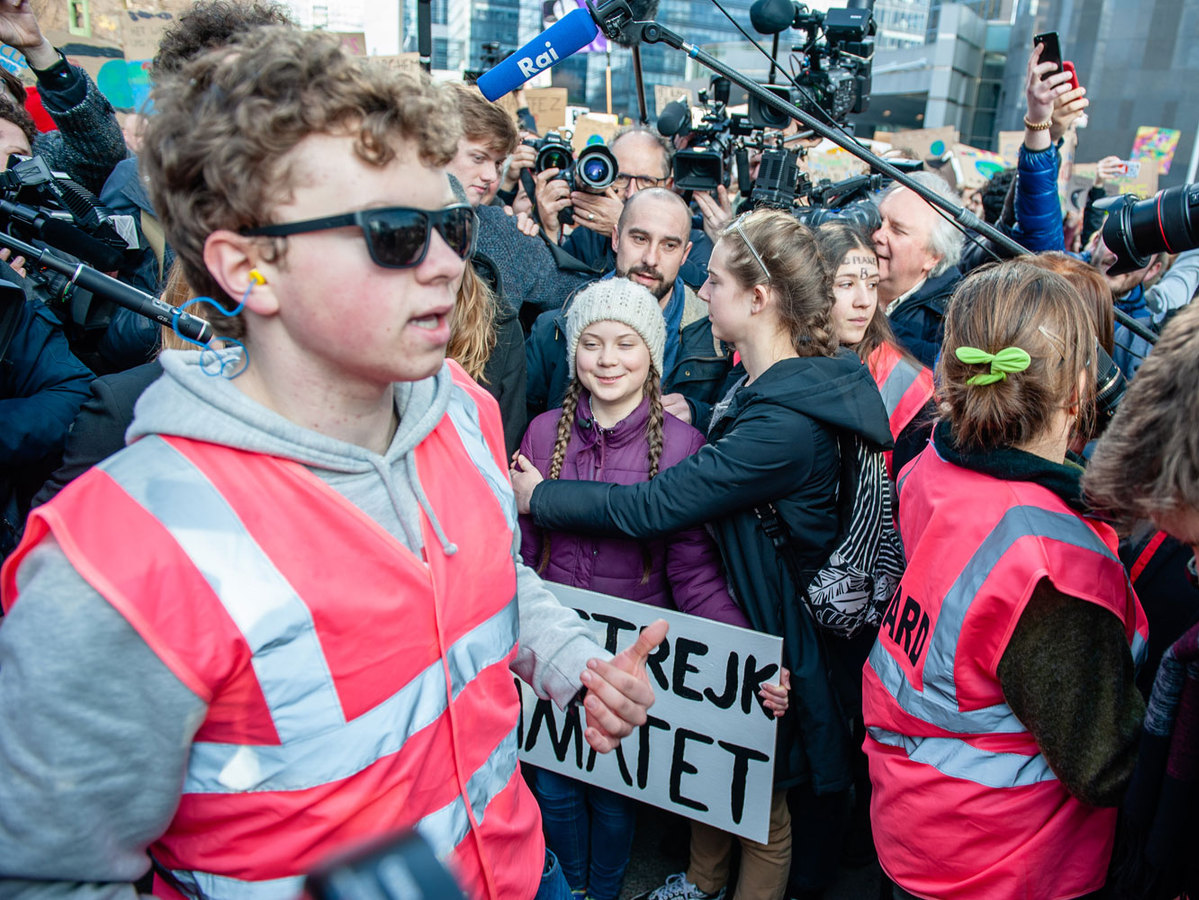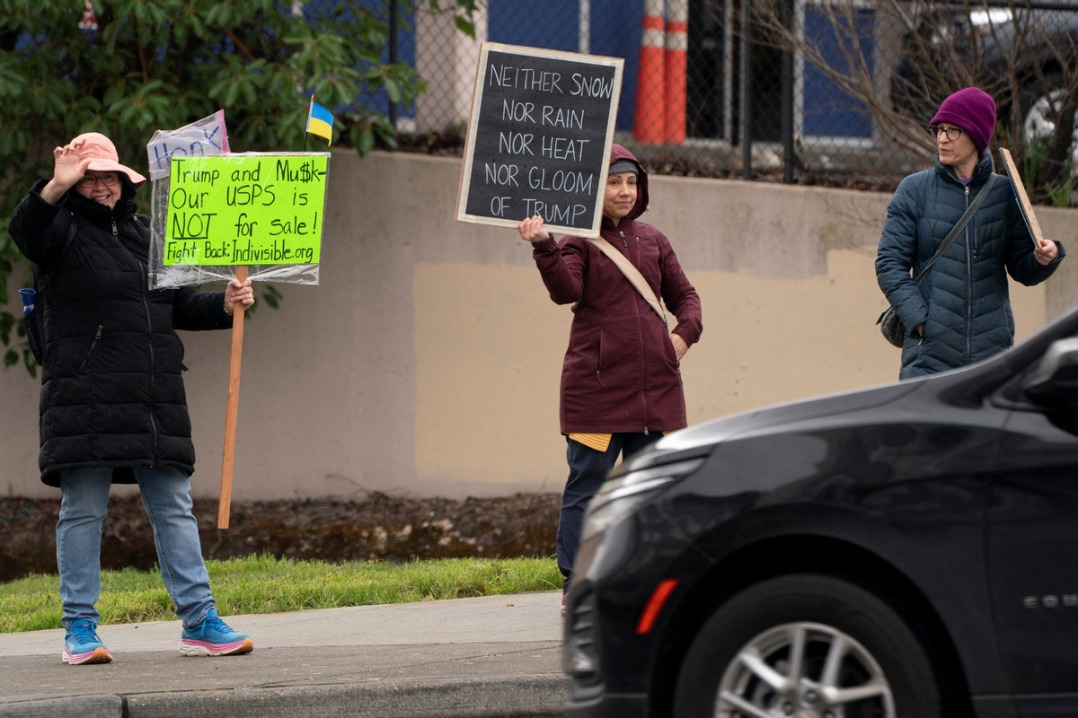Students continue strike for climate


Thousands of students skipped schools and flooded central Brussels on Thursday for the seventh consecutive week in a protest to call for tough action on climate change.
The arrival of Greta Thunberg, a 16-year-old Swedish teenage activist, pushed the atmosphere to a climax.
The demonstration drew approximate 12,000 people, bringing the nearby traffic network to a temporary standstill, Belgian police said.
Holding brown banners with slogans like "There is no planet B" and shouting "plus chauds que le climat (hotter than the climate)", the students rallied to urge European governments to combat global warming with more effective policies.
"It's time to do something and change something, because that's our future. We have to think about the generation that will come and we are not doing that right now. We need to do that," said Lien Spildooren, a 15-year-old marcher.

The procession was also joined by supportive parents. Begga Dom, a psychologist who joined the march with her two children, said: "I am doing it for ourselves and our children because I think the near future is really a threat. Even my youngest child who is 7 years old knows it is an emergency, so I really want to come to tell other children."
The march was part of a global movement called Youth Strike for Climate, a brainchild of Thunberg.
The prominent figure started her first school strike in front of the Swedish parliament accusing the government of its inaction on climate issues in August 2018. The momentum was further gained after October, when the United Nations' Intergovernmental Panel on Climate Change published the Special Report on Global Warming of 1.5 C.
The report warned that global warming is likely to reach 1.5 C between 2030 and 2052, if it continues to increase at the current rate, it will threaten "health, livelihoods, food security, water supply, human security, and economic growth".
Since Thunberg's first protest, tens of thousands of teenagers across Europe and the world have been inspired, igniting the widespread demonstrations in Belgium, Britain, Germany, France, Switzerland, Ireland and elsewhere.
In early February, the number of protesters in Switzerland and the Netherlands hit 65,000 and 15,000 respectively, and in Germany reached 32,000 on Jan 18, according to the local activists.
EU pledge
European Commission President Jean-Claude Juncker responded to Thunberg in his proposal for the European Union budget on Thursday, stating that during the next financial period from 2021 to 2027, "every fourth euro spent within the EU budget will go toward action to mitigate climate change."
However, many politicians still remain skeptical toward the movement including British Prime Mnister Theresa May who criticized the disruption as it "increases teachers' workloads and wastes lesson time".
The next milestone will be on March 15 when extensive walkouts are staged in more than 43 countries, making it the first international climate strike, according to Youth for Climate, a Belgian nonprofit organization.
Chen Wenxin and Dong Yuwen in Brussels contributed to this story.
































